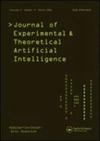内部补充动作测量,以增加动作值的间隙,降低对高估误差的敏感性
IF 1.7
4区 计算机科学
Q3 COMPUTER SCIENCE, ARTIFICIAL INTELLIGENCE
Journal of Experimental & Theoretical Artificial Intelligence
Pub Date : 2021-07-26
DOI:10.1080/0952813X.2021.1955017
引用次数: 0
摘要
强化学习在帮助解决顺序决策问题方面具有相当大的前景,其中q学习是最常用的算法之一。然而,Q-learning存在高估错误,特别是当相同状态下的动作值相似时。为了减少这种损害,我们引入了一种基于状态转换之间期望状态值变化的内部补充动作测量,可以测量导致状态转换的动作。由于内部补充动作测量可以根据动作性能增加或减少动作值,因此可以增加动作值的间隙,从而降低对高估误差的敏感性。在马尔可夫链和电子游戏中的实验结果表明,应用内部补充动作测量的性能优势,与不使用内部补充动作测量相比,使用内部补充动作测量的《SpaceInvaders》的平均评价分数为131.6%,《Seaquest》为187.9%,《Asterix》为176.6%。本文章由计算机程序翻译,如有差异,请以英文原文为准。
An internal supplemental action measurement to increase the gap of action values and reduce the sensitivity to overestimation error
ABSTRACT Reinforcement learning holds considerable promise to help address sequential decision-making problems, in which Q-learning is one of the most used algorithms. However, Q-learning suffers from overestimation errors, especially when action values in the same state are similar. To reduce such damages, we introduce an internal supplemental action measurement based on the variation of the expected state values between a state transition, which can measure the action causing the state transition. For the reason that the internal supplemental action measurement can increase or decrease the action values according to the action performance, it can increase the gap of the action values, thus reducing the sensitivity to the overestimation error. The experimental results in the Markov chain and the video games demonstrate the performance advantage of applying the internal supplemental action measurement, in which the mean evaluating scores with the internal supplemental action measurement are 131.6% in SpaceInvaders, 187.9% in Seaquest, and 176.6% in Asterix respectively of that without the internal supplemental action measurement.
求助全文
通过发布文献求助,成功后即可免费获取论文全文。
去求助
来源期刊
CiteScore
6.10
自引率
4.50%
发文量
89
审稿时长
>12 weeks
期刊介绍:
Journal of Experimental & Theoretical Artificial Intelligence (JETAI) is a world leading journal dedicated to publishing high quality, rigorously reviewed, original papers in artificial intelligence (AI) research.
The journal features work in all subfields of AI research and accepts both theoretical and applied research. Topics covered include, but are not limited to, the following:
• cognitive science
• games
• learning
• knowledge representation
• memory and neural system modelling
• perception
• problem-solving

 求助内容:
求助内容: 应助结果提醒方式:
应助结果提醒方式:


